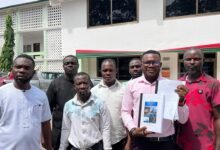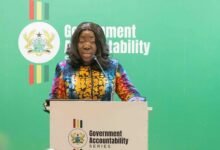India Women Association gives GH¢33,000… to supports treatment of 10 breast cancer women

A total of 10 women suffering from breast cancer have been presented with a cheque for GH¢33,000.00 to aid their “radiation and chemotherapy treatment” at the Korle Bu Teaching Hospital (KBTH).
The donation was made by a charity organisation known as the Indian Women Association (IWA) over the weekend, to reduce the financial burden of the patients for cancer treatment.
Presenting the cheque, the president of IWA, Vanisha Daryanani, underscored the need for more stakeholders to be actively involved in providing financial assistance to persons living with the ailment as a lot of them were impoverished.
“We came across many ladies who were suffering from the disease but were not aware and cannot afford the treatments. So, in our little way we started the breast cancer awareness programme to raise awareness and financially assist them,” she added.
She stated that the gesture aligned with the IWA goals of creating awareness about breast cancer as many women were succumbing to the illness although it could be treated.
“Cancer treatment is expensive and because of that, others who cannot afford it resort to other forms of treatment or abandon treatment halfway and end up losing their lives,” she lamented.
Ms Daryanani noted that the exercise would not be limited to only the Korle Bu Hospital but would be replicated in the various major hospitals in the country as a healthy population contributes significantly to socio-economic development.
Ms Daryanani urged women to visit the nearest medical centre to screen for the disease or do a self-examination to know their status as early detection of the ailment increases your chances of survival.
Speaking on behalf of the beneficiaries, a nursing officer at the Breast Cancer and Oncology Unit of the KBTH, Julitta McCarthy, commended the IWA for their support as it would reduce the financial burden of the patients.
She urged Ghanaians to be constantly updated on their health status while calling for more stakeholder support for breast cancer patients as the illness was deadly but treatable when detected early.
BY JESSEL LARTEY THERSON-COFIE







